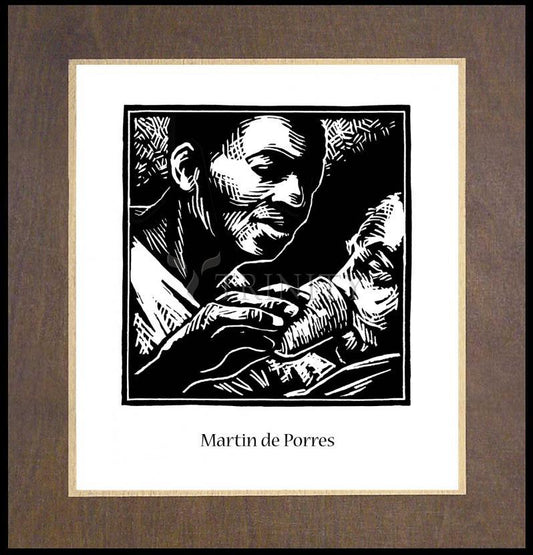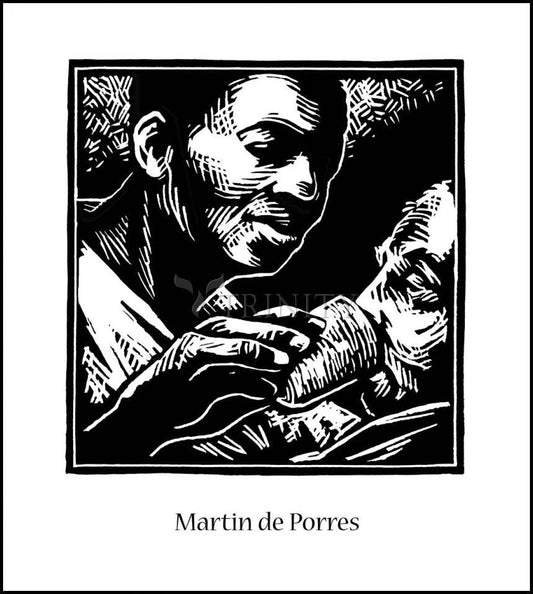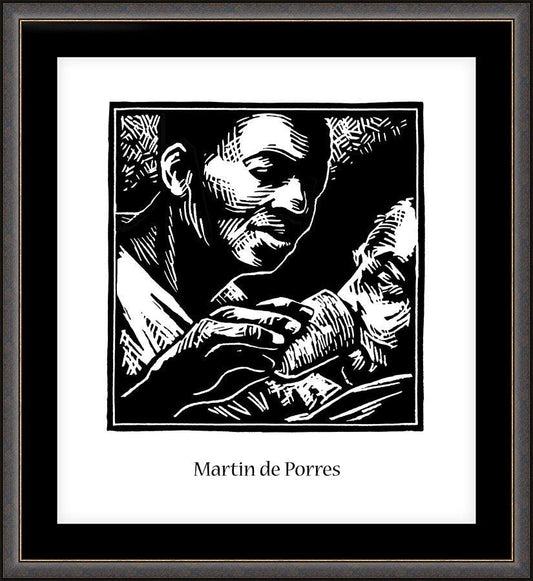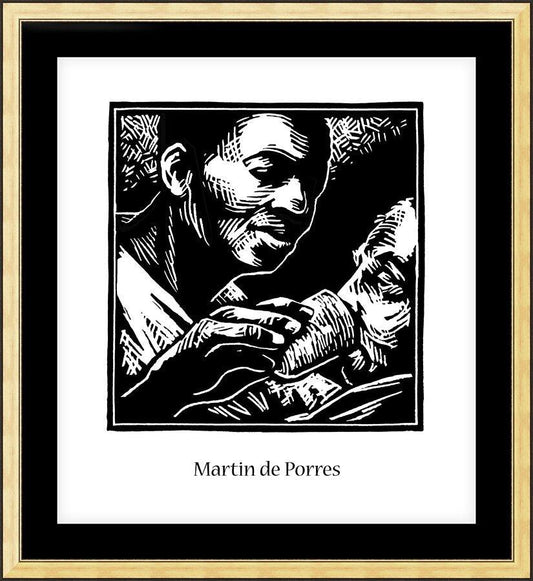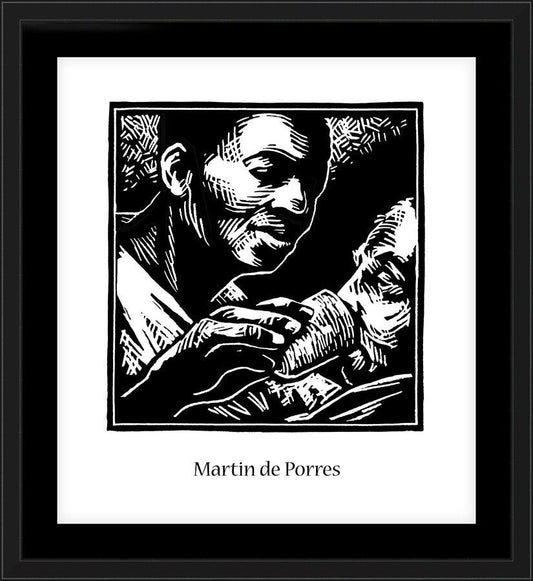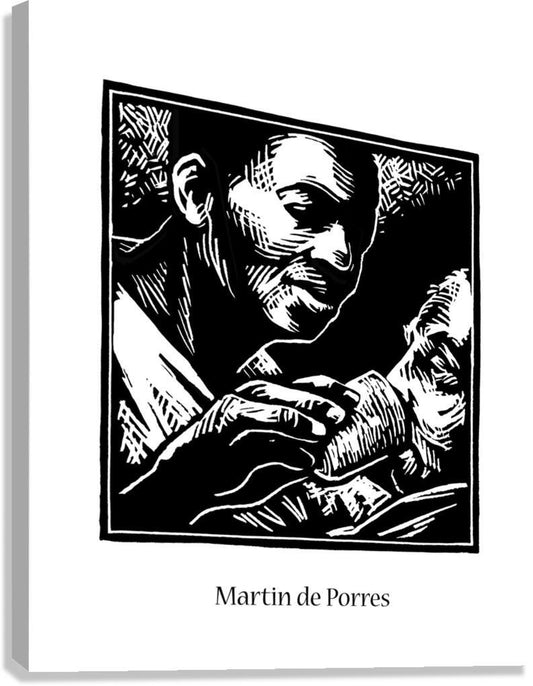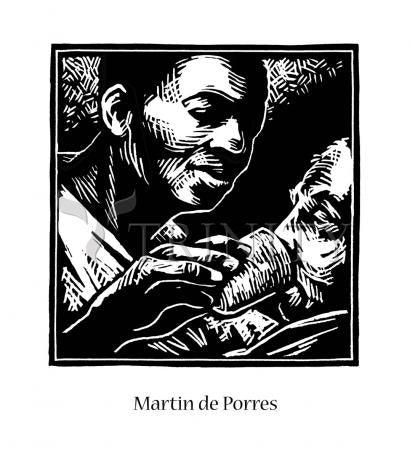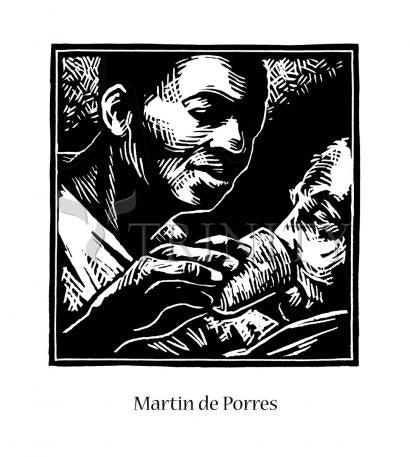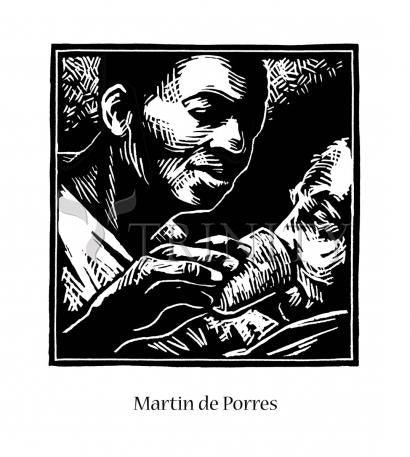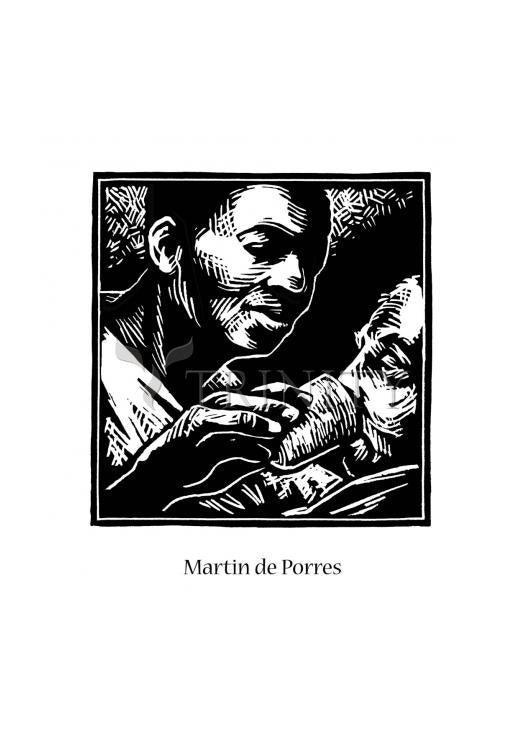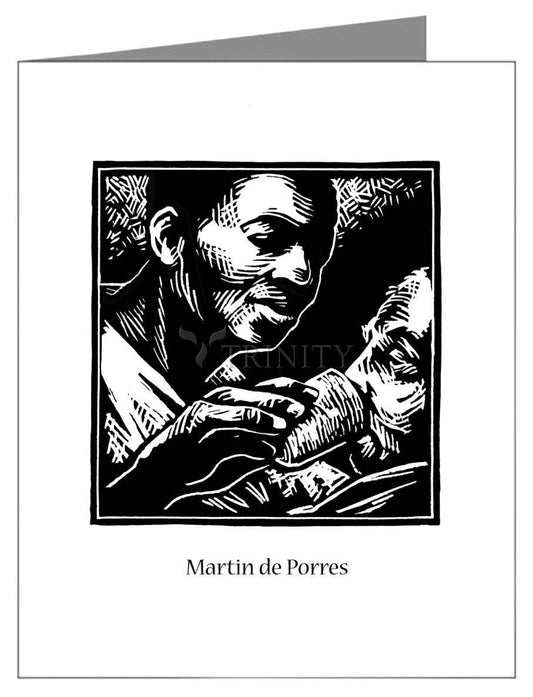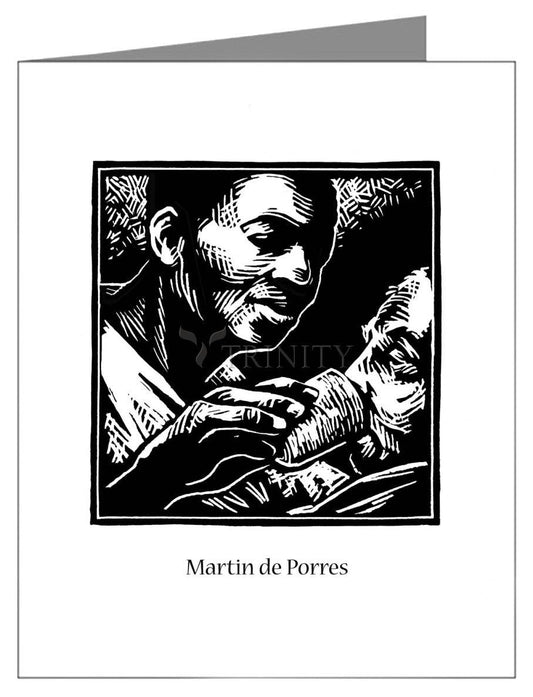Juan Martin de Porres Velázquez was born in the city of Lima, in the Viceroyalty of Peru, on December 9, 1579. He was the illegitimate son of a Spanish nobleman, Don Juan de Porres, and Ana Velázquez, a freed slave from Panama, of African or possibly part Native American descent. He had a sister named Juana, born two years later in 1581. After the birth of his sister, the father abandoned the family. Ana Velázquez supported her children by taking in laundry. He grew up in poverty and, when his mother could not support him, Martin was confided to a primary school for two years, and then placed with a barber/surgeon to learn the medical arts. He spent hours of the night in prayer, a practice which increased as he grew older.
By law in Peru, descendants of Africans and Indians were barred from becoming full members of religious orders. The only route open to Martin was to ask the Dominicans of Holy Rosary Priory in Lima to accept him as a donado, a volunteer who performed menial tasks in the monastery in return for the privilege of wearing the habit and living with the religious community. At the age of 15 he asked for admission to the Dominican Convent of the Rosary in Lima and was received first as a servant boy, and as his duties grew he was promoted to almoner.
Martin continued to practice his old trades of barbering and healing and performed many, many miraculous cures. He also took on kitchen work, laundry, and cleaning. After eight years at Holy Rosary, the prior Juan de Lorenzana, decided to turn a blind eye to the law and permit Martin to take his vows as a member of the Third Order of Saint Dominic. Holy Rosary was home to 300 men, not all of whom were as open-minded as De Lorenzana; one of the novices called Martin a "mulatto dog," while one of the priests mocked him for being illegitimate and descended from slaves.
When Martin was 24, he was allowed to profess religious vows as a Dominican lay brother in 1603. He is said to have several times refused this elevation in status, which may have come about due to his father's intervention, and he never became a priest. It is said that when his convent was in debt, he implored them: "I am only a poor mulatto, sell me." Martin was deeply attached to the Blessed Sacrament, and he was praying in front of it one night when the step of the altar he was kneeling on caught fire. Throughout all the confusion and chaos that followed, he remained where he was, unaware of what was happening around him.
When Martin was 34, after he had been given the religious habit of a lay brother, he was assigned to the infirmary, where he was placed in charge and would remain in service until his death at the age of 59. He was known for his care of the sick. His superiors saw in him the virtues necessary to exercise unfailing patience in this difficult role. It was not long before miracles were attributed to him. Martin also cared for the sick outside his convent, often bringing them healing with only a simple glass of water. He ministered without distinction to Spanish nobles and to slaves recently brought from Africa. One day an aged beggar, covered with ulcers and almost naked, stretched out his hand, and Martin took him to his own bed. One of his brethren reproved him. Martin replied: "Compassion, my dear Brother, is preferable to cleanliness."
When an epidemic struck Lima, there were in this single Convent of the Rosary 60 friars who were sick, many of them novices in a distant and locked section of the convent, separated from the professed. Martin is said to have passed through the locked doors to care for them, a phenomenon which was reported in the residence more than once. The professed, too, saw him suddenly beside them without the doors having been opened. Martin continued to transport the sick to the convent until the provincial superior, alarmed by the contagion threatening the friars, forbade him to continue to do so. His sister, who lived in the country, offered her house to lodge those whom the residence of the religious could not hold. One day he found on the street a poor Indian, bleeding to death from a dagger wound, and took him to his own room until he could transport him to his sister's hospice. The prior, when he heard of this, reprimanded him for disobedience. He was extremely edified, however, by his reply: "Forgive my error, and please instruct me, for I did not know that the precept of obedience took precedence over that of charity." The prior gave him liberty thereafter to follow his inspirations in the exercise of mercy.
Martin did not eat meat. He begged for alms to procure necessities the convent could not provide. In normal times, Martin succeeded with his alms to feed 160 poor persons every day, and distributed a remarkable sum of money every week to the indigent. Side by side with his daily work in the kitchen, laundry and infirmary, Martin's life is said to have reflected extraordinary gifts: ecstasies that lifted him into the air, light filling the room where he prayed, bilocation, miraculous knowledge, instantaneous cures and a remarkable rapport with animals. He founded a residence for orphans and abandoned children in the city of Lima
Born: December 9, 1579 at Lima, Peru
Died: 1639 of fever
Beatified: 1873
Canonized: May 16, 1962 by Saint John XXIII



